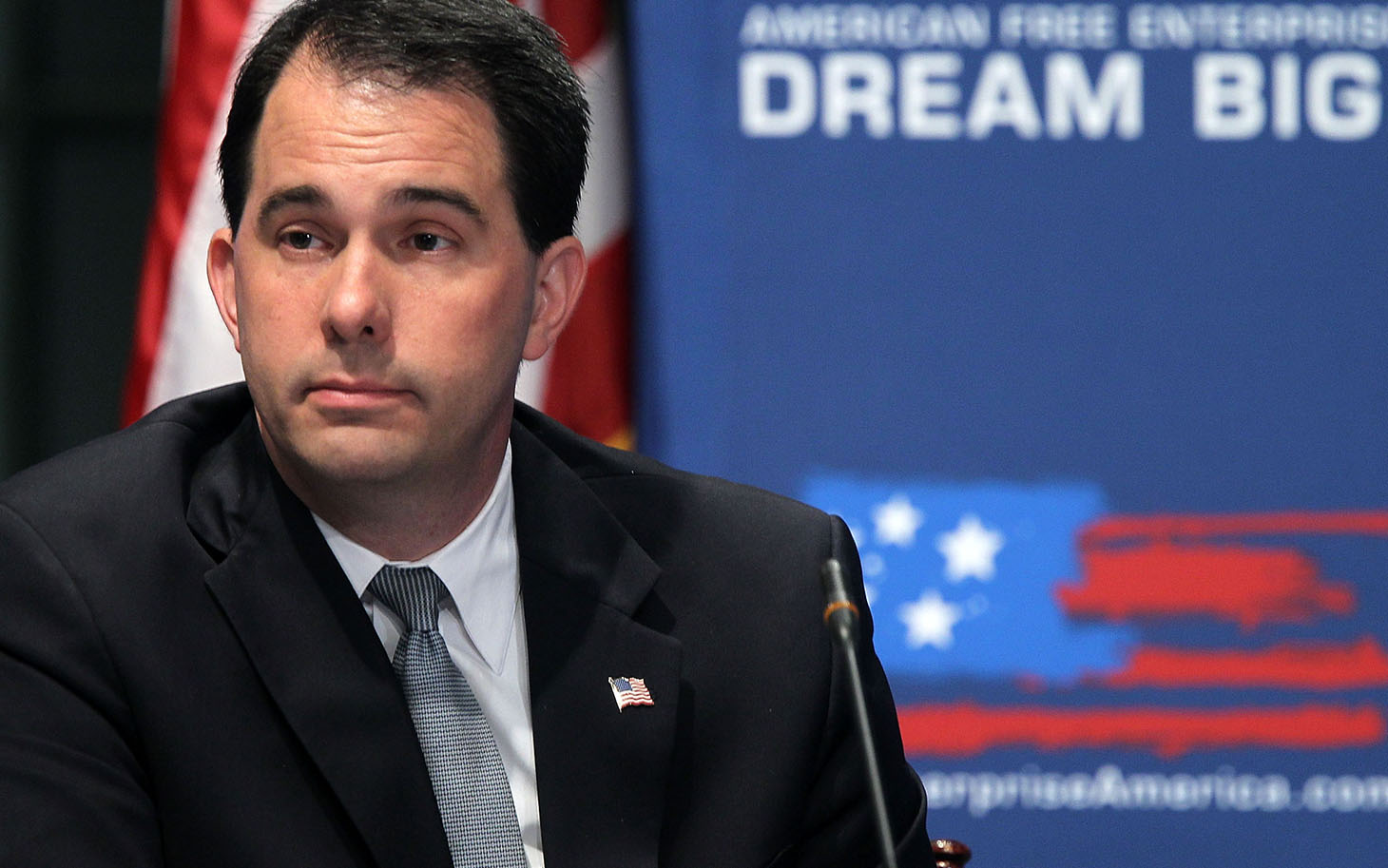It’s been a few days since Wisconsin Governor Scott Walker, once a front runner for the 2016 Republican nomination, ended his campaign abruptly amid a funding drought and two poor debate performances. Now that the dust is settling, some of his campaign team is speaking out and it’s pretty clear how the campaign collapsed under its own weight.
Report from Politico:
Prior to the governor’s abrupt exit from the Republican race, his campaign had a break-glass-in-case-of-emergency plan at the ready: Campaign manager Rick Wiley, in a half-hour phone interview with POLITICO on Tuesday night, said he had an “all-in Iowa” plan that would have moved the headquarters from Madison, Wis., to Des Moines and cut the staff from about 85 to 20 as of Thursday. But Walker, floundering in debates and on the stump, was facing such a sudden drought in donations that even those drastic moves wouldn’t have guaranteed solvency.
“We built the machine that we needed to get a governor in just phenomenal shape to take a stage in a presidential debate,” Wiley said. “I think sometimes it’s lost on people the largeness of the job. I think people just look at it and say, ‘Wow! Yeah, you know, it’s like he’s a governor and he was in a recall’ and blah, blah, blah — he’s ready.
“It’s just not like that. It is really, really difficult. … I’m just saying, you know, like it’s a f—ing b–ch, man. It really is.”
…
A Republican close to Walker said: “The entire campaign was built a bit larger than it should have been early on. Then after the debates and the resources slowed, modifications were not made. … Expectations were high, and there was momentum. And the thought was that you needed staff to keep that going, and get more resources coming in.”
There’s a lot more content in the story, it’s an interesting read if you’re intrigued by the inner workings of campaigns and what makes them succeed or fail. It seems to me that Walker assembled a large team before his status as a front runner was actually cemented. Following his big speech in January, where he grabbed everyone’s attention, he went on to begin setting up an extensive presence in Iowa and hiring lots of staffers. That worked out fine while the money was coming in.
Instead of starting small and building out as needed, the Walker team started huge and was forced to fall under the weight of too many paid employees and a lack of funding.
I’d say in the early months of March, April and May of this year, the expectation became conventional wisdom that Walker was easily poised to win Iowa given his Midwest roots and tenure as a Governor next door in Wisconsin. When it came to the national stage, Walker simply couldn’t stand out among bigger names, Tea Party favorites, and a celebrity candidate with a much larger mouth.
One final note, it appears that the campaign infrastructure was ready to take off and fully run a national campaign. The issue was with Walker’s inability to capture the national lead and create the demand for his extensive campaign apparatus.
Donate Now to Support Election Central
- Help defend independent journalism
- Directly support this website and our efforts
